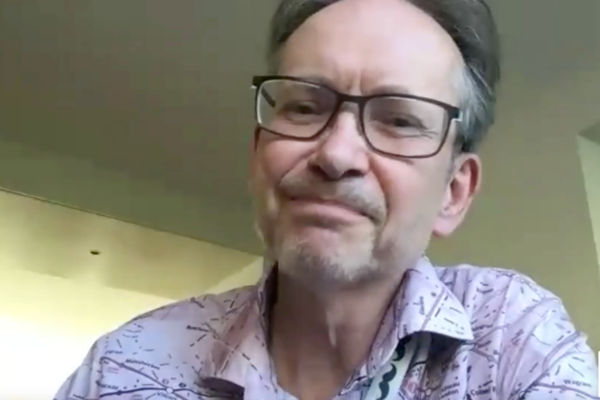Professor Chris Bangma says protocols are improving all the time
Evidence shows that the risks of active surveillance (AS) are very small, with just 2% of men on AS programmes dying of metastatic prostate cancer within 15 years. This was one of the main messages from Professor Chris Bangma, one of Europe’s leading AS researchers, speaking at Europa Uomo’s third webinar examining issues in AS.
While accepting that there was still a risk, and AS could involve anxiety and unpleasant procedures such as biopsies, Professor Bangma, who is Professor in Urology at Erasmus University Medical Centre, Rotterdam, was positive about the benefits of AS programmes.
Men with early and localised prostate cancer who were considering such programmes, he said, had to remember they were only there because increased screening efforts were picking up more prostate cancers earlier, and there was a need to make sure men’s quality of life was not affected by unnecessary treatment.
“We know active surveillance is safe,” he said. “We now know, with the experience of over 15 years, how to manage active surveillance. Accepted AS programmes in Europe, such as PRIAS (the Prostate Cancer Research International Active Surveillance protocol) give you support in how to do it, together with your physician. It's a protocol of regular checks by PSA and imaging that has been introduced over the last couple of years and gives quality control because physicians, technicians and doctors can look over your shoulder at the programme and can check it.”
Professor Bangma, whose department launched PRIAS in 2007, said that there are different protocols in different countries, but all are constantly improving. There is even the prospect, now, of biopsies being replaced with MRI scans – but the research has yet to prove that this will be just as effective.
“People who are on a protocol remain on active surveillance longer because they feel supported, they have less anxiety and they know that when the protocol shows any change in progression then they have to act.”
Professor Bangma said he was impressed by the testimonies of men who had experienced AS during the Europa Uomo webinars, “because they reflect the lives of thousands of men in Europe struggling with prostate cancer and making decisions… please communicate with each other the best you can". He also paid tribute to Europa Uomo for facilitating pan-European discussion on AS over many years.
You can view the full webinar in the video below.
